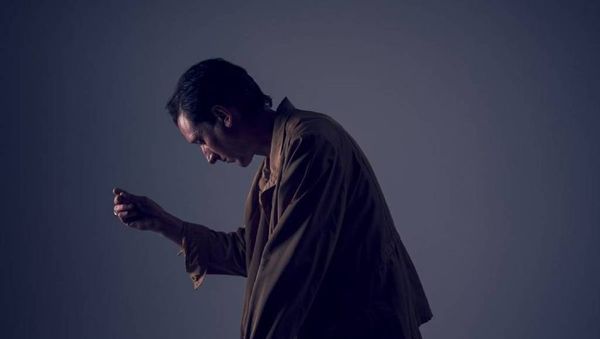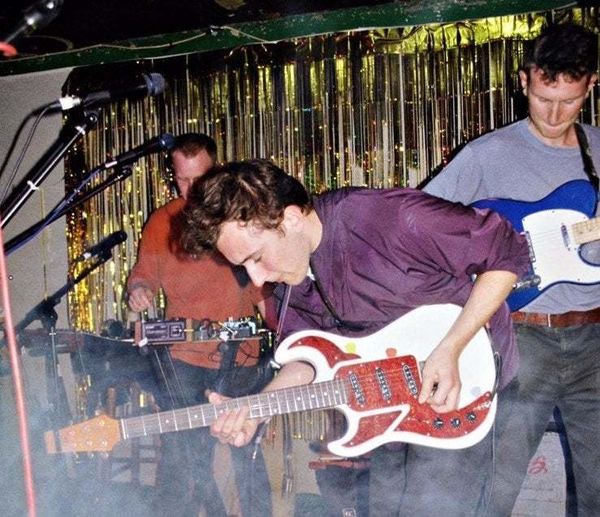
Darkness lifts from over Studland Bay in Dorset and a figure drifts into view, sloping through the gloom. It’s Chris Martin of up-and-coming indie strivers Coldplay, starring in the video for his band’s new single.
“Look at the stars/ look how they shine for you,” he croons from beneath several layers of sensible rain-gear as guitars busy themselves in the background. It’s a deeply plaintive moment, one Coldplay would spend a chunk of the following two decades recreating in stadiums around the globe.
“I remember hearing that song and thinking, ‘That sounds like a hit,’” says Dan Keeling, the former A&R man who signed Coldplay to Parlophone Records. “It’s epic but at the same time it’s not. It’s pared back and natural. I remember feeling the sky was the limit.”
“Yellow” was released 20 years ago this week (26 June) and immediately marked Martin and his bandmates as something different. It peaked at four in the charts and set the quartet up for the triumph that would follow with debut album Parachutes (released on 10 July 2000, it went to number one and shifted 8.5 million copies).
With hindsight, the success of both feels preordained. By 2000, Radiohead had lost interest in inheriting U2’s mantle as the epic rockers it was acceptable to cry to. None of their imitators seemed up to the job. Enter Coldplay, for whom waxing sincere came as naturally as the rain blowing in from the ocean swells at Studland Bay.
Yet, at the time, there was nothing straightforward about Coldplay’s rise. They made being heartfelt seem effortless. But the recording of Parachutes was intense and had its share of troubles. And before all that, Coldplay had to overcome a disadvantage that would have condemned a less determined bunch: their honking lack of cool.
“When I first saw them they were a little bit naff,” says Keeling, who would go on to become managing director of Island Records, before leaving music behind to found and edit wine and food magazine Noble Rot (with several of Coldplay as investors).
“They were playing Cairo Jacks, which was an Egyptian theme bar,” he recalls of his first Coldplay encounter, in 1998. “I’d already seen four bands that night. There were about 20 people in the place, obviously UCL students who went to college with the group. Nowadays Coldplay are very slick. At the time, there was a bit of stone-washed denim going on. There were definitely student jumpers three sizes too big.
“Chris Martin was handing out Curly Wurly bars. I remember trying to get out of the venue as quickly as possible without talking to the manager. The demo they did around the time of Cairo Jacks had a song on it called ‘Ode to Deodorant’. It was a really average band demo that someone would do when they were 17 or 18.”
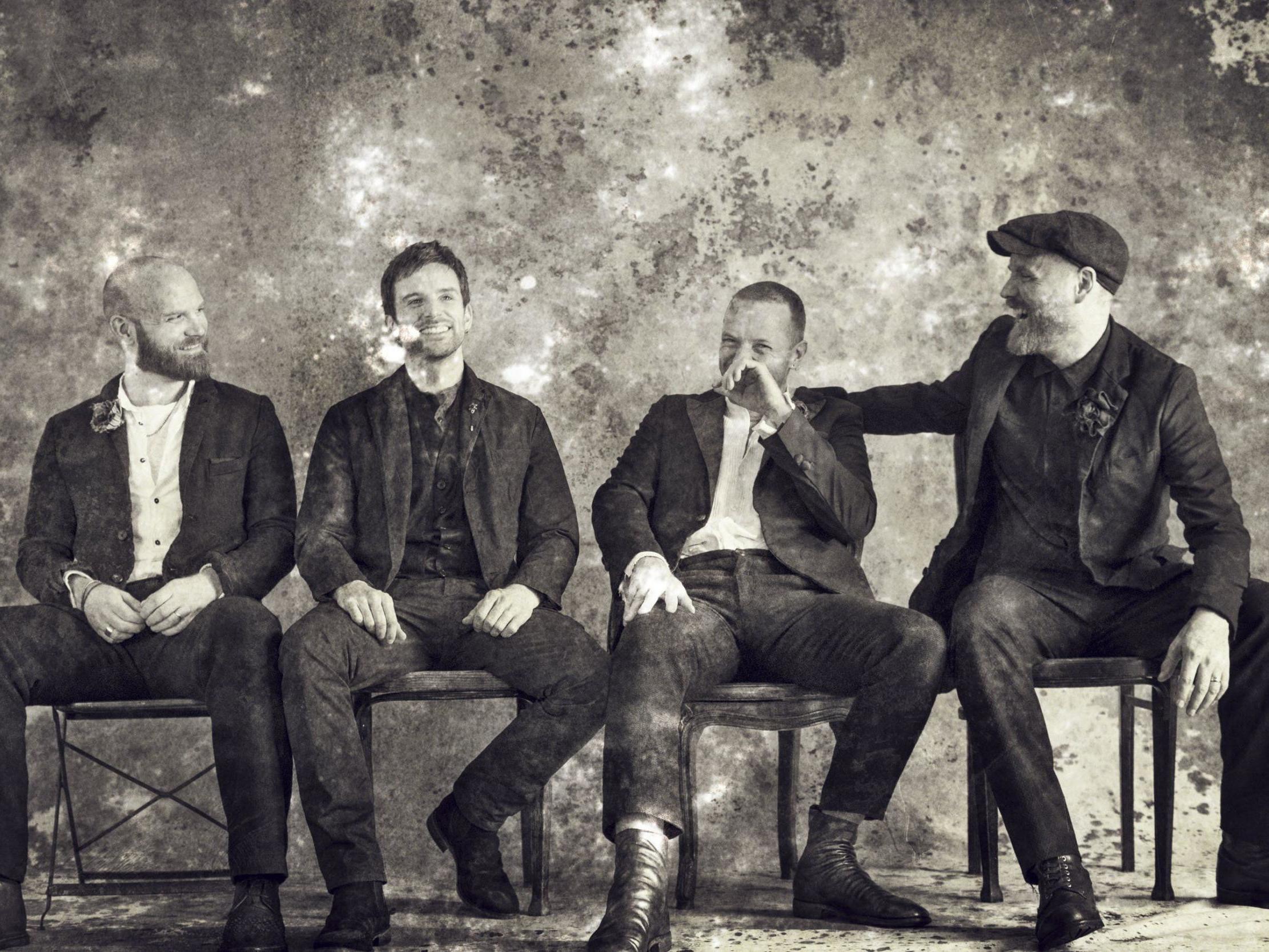
Six months on, he received a fresh demo from Coldplay and was gobsmacked at their progress. “They had a song called ‘Bigger Stronger’. It was a little bit like ‘Fitter Happier’ on OK Computer by Radiohead. Obviously everybody into alternative bands at the time was absolutely blown away by OK Computer. You could tell Chris had been listening to it. Like all the best songwriters he’s a bit of magpie.”
Still, the odds of Martin, bookish son of a chartered accountant from Exeter, one day becoming a global rock god must have seemed pretty long. He had just started studying Greek and Latin at UCL when, in September 1996, he met guitarist Jonny Buckland, who was taking a degree in mathematics.
With another pal, Guy Berryman, on bass, as Pectoralz and then Starfish, they played gigs in whatever dingy Camden venue would have them. Later, anthropology undergraduate Will Champion joined as drummer and they changed their name to Coldplay. Which was when they first popped up on the radar of A&R scouts such as Keeling.
“I wasn’t thinking this was going to be a 100 million band, the size of U2 or whatever,” he says. “Although that was very much the job at the time. I remember getting the job at Parlophone and my dad asking, ‘What is it you’ve got to do?’ The answer to that is you’ve got to find the next Oasis or David Bowie.”
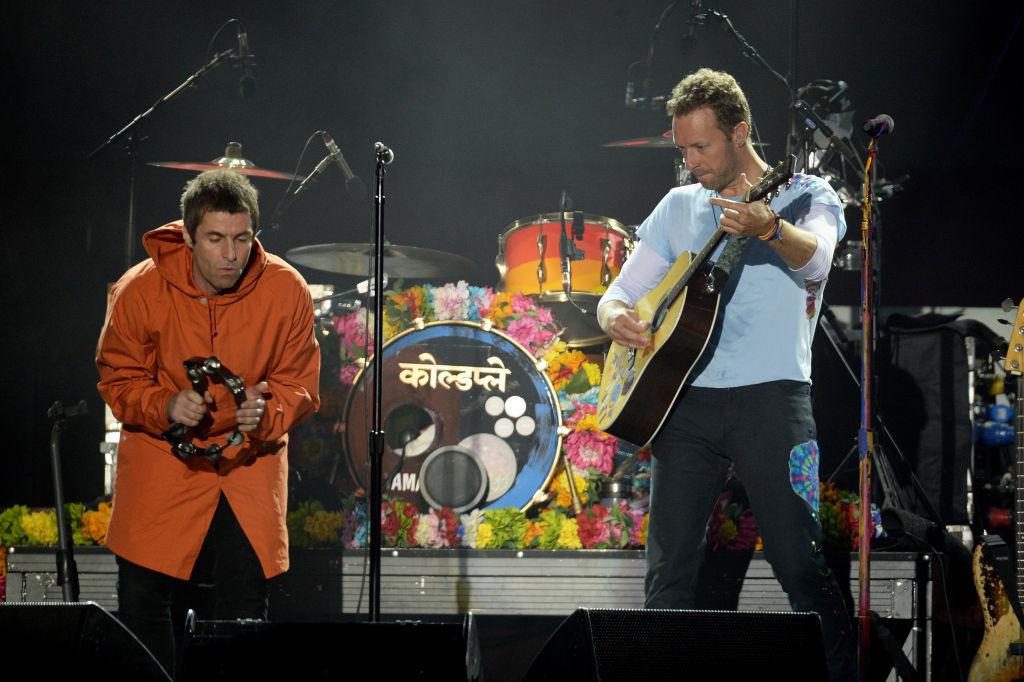
Still, he must have had an inkling great things beckoned for Coldplay. When it came time to sign their deal in April 1999, Keeling arranged a ceremony in Trafalgar Square. “I was thinking of the Sex Pistols [signing their deal] outside Buckingham Palace,” he says. “I went to B&Q and got a wallpaper table, went to the square. Tom Sheehan the photographer was there and we just did it.”
Coldplay were ambitious. But they were also painfully aware that this was their one shot and that they daren’t muck it up. Nerves had a debilitating impact, and led to tensions both within the band and with the behind the scenes team Parlophone had assembled to help them on Parachutes.
“It was that classic thing of trying too hard… feeling the pressure,” remembers Keeling. “It’s like anything in life – you have to relax. And they weren’t relaxed. We’d been in the studio with another producer and they’d fallen out straight away on the first day of pre-production. The producer and Chris Martin were locking swords. That was going nowhere.”
The idea of Chris Martin, cuddliest rock star on the planet, getting into a rumble with a producer might feel far-fetched today. But behind his approachable persona, says Keeling, the young Martin was ambitious and knew exactly what he wanted.
“Chris is incredibly driven and single-minded. And because he was a teetotaller … when the rest of the band were down the pub he’d be at home writing. He’s very polite but he’s like anyone fronting a band. They’re complex characters. If he was in the studio and he came in and thought something wasn’t going well he would get quite introverted and alter the mood.”
With strife still in the air, a new producer was brought in the form of Ken Nelson. An affable Liverpudlian, Nelson was in the process of scoring a Mercury Music Prize double-whammy, having worked on gong-garnering records by Gomez and Badly Drawn Boy.
However, Coldplay were by far the biggest-selling band with whom he would cross paths. And from the beginning of the Parachutes sessions at Rockfield Studios near Monmouth in Wales, he could see they were going places.
“Chris came in with a new song,” is how he remembers the genesis of “Yellow”. “He liked to play stuff early on [in the writing process]. He had the opening few chords, the opening line of lyrics. It was quite funny: he was playing it on an acoustic guitar and singing it, trying to sound like Neil Young.”
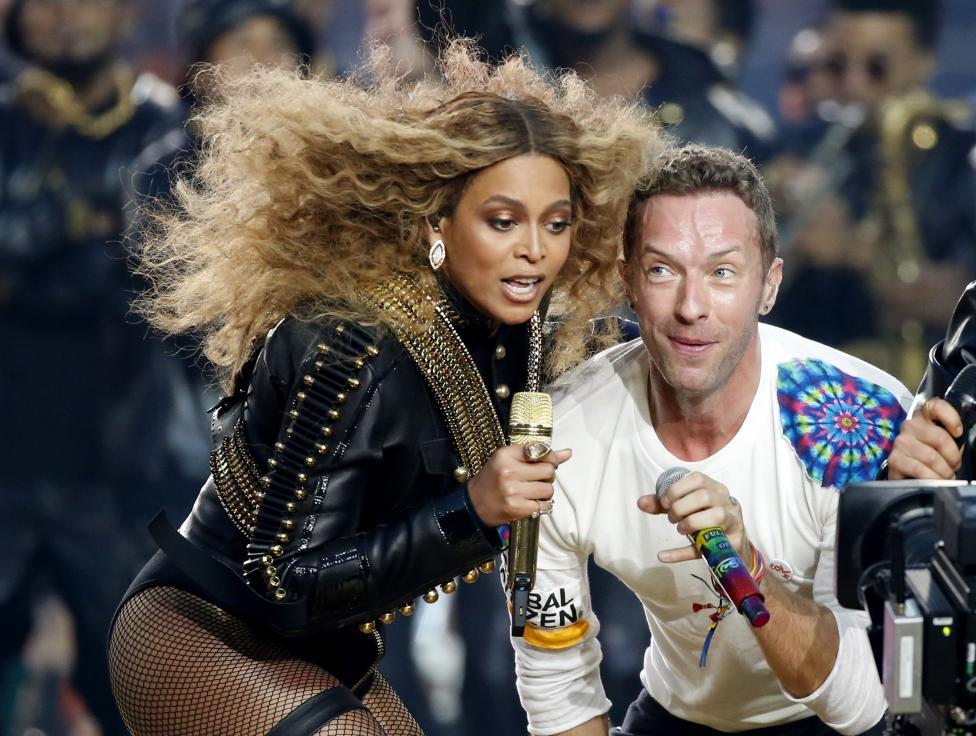
Coldplay weren’t embarrassed about wanting to be huge, recalls Nelson (whose own son, Michael Joseph Nelson, fronts heartfelt songwriting vehicle Banners). “Chris is very driven by three things. Writing great songs, performing great songs. And also trying to be the biggest band in the world.
“You might have recorded seven or eight songs for an album and he’d go ‘we need something like this’. I saw that on their second album, A Rush of Blood to the Head… ‘I think we need a piano-based song.’ And in a couple of days, he’d have one. He wrote ‘The Scientist’ really late in the recording of that album. And then ‘Clocks’ came right at the end. We’d basically finished and had to put the release back by a week.”
Because of the early clashes, Coldplay had eaten into a chunk of time and cash by the time Nelson joined. “They were feeling the pressure,” he recalls. “They’d spent a fair part of their budget. When I came on board half if it [was gone]. But Dan Keeling and Keith Wozencroft [Parlophone managing director] were very supportive once they’d heard a few tracks. I didn’t feel the pressure until later on.”
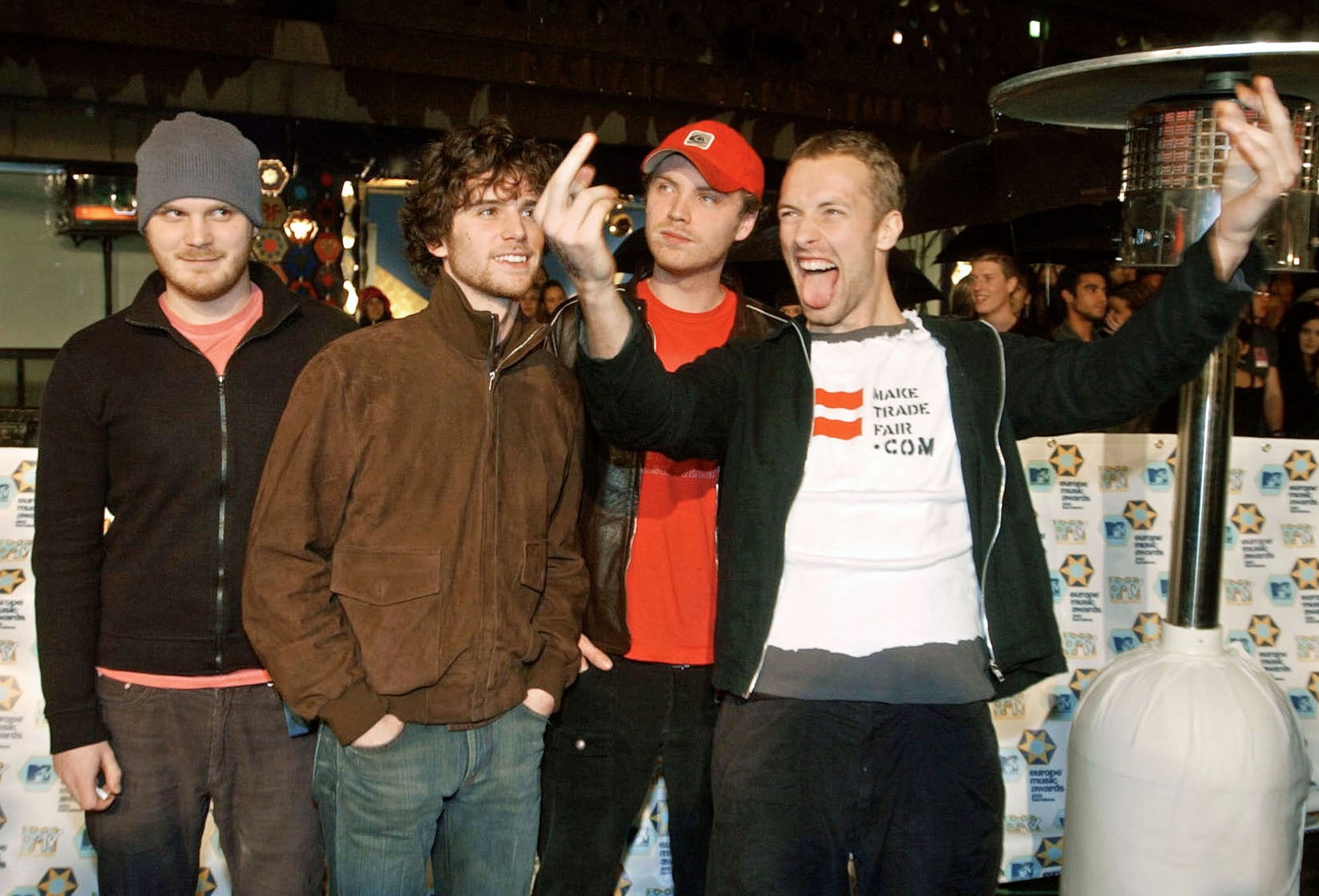
By “later on”, he means 2002’s A Rush of Blood to the Head – during which Coldplay struggled through the archetypal difficult second-record syndrome.
“They were negotiating their deal after Parachutes,” remembers Nelson. “So it was a little bit of a strained relationship between Dan Keeling and the band. I just wanted to get on with recording. I do know that at the end of making A Rush of Blood, the pressure was felt by everybody. EMI [Parlophone’s parent company] was going through a strange time – they needed the album out and it kept dragging on. We recorded ‘Clocks’ as an extra track, which added a week on to the release. There was definitely pressure.”
With Parachutes, the sweat and tears more than paid off. Rolling Stone hailed it as a “work of real transcendence”; NME opined that it was “incredible” for a debut album. True, there were dissenters. Chris from Coldplay certainly wasn’t Independent critic Andy Gill’s favourite Martin. Gill would later describe Coldplay as “pompous, mawkish, and unbearably smug… the sonic equivalent of wilted spinach”. Yet that was a minority opinion at the time.
Twenty years on, it may seem slightly surreal to imagine that Coldplay were ever taken seriously as an indie band. But it should be remembered that, by the end of 2000, there was a sense among many rock fans that Radiohead had forsaken their responsibilities by releasing the weird and difficult Kid A (which came out that October).
Nor were Coldplay yet the celebrity hobnobbers we know today. At that point, audiences who had adored anthems such as “High and Dry” and “Fake Plastic Trees” saw nothing in the least objectionable about Coldplay and Parachutes. The idea of Coldplay as wilted-spinach purveyors for the masses had not yet taken hold.
“Over time they changed into something else,” says Dan Keeling. “[Their music] has been thought out to appeal to a sort of person and to appeal to radio stations. Whereas people like Thom Yorke [of Radiohead] have gone the opposite way. All he is focused on is, ‘I want to do my art.’ It’s a completely different approach. Coldplay ended up in a very different place from where they started.”






